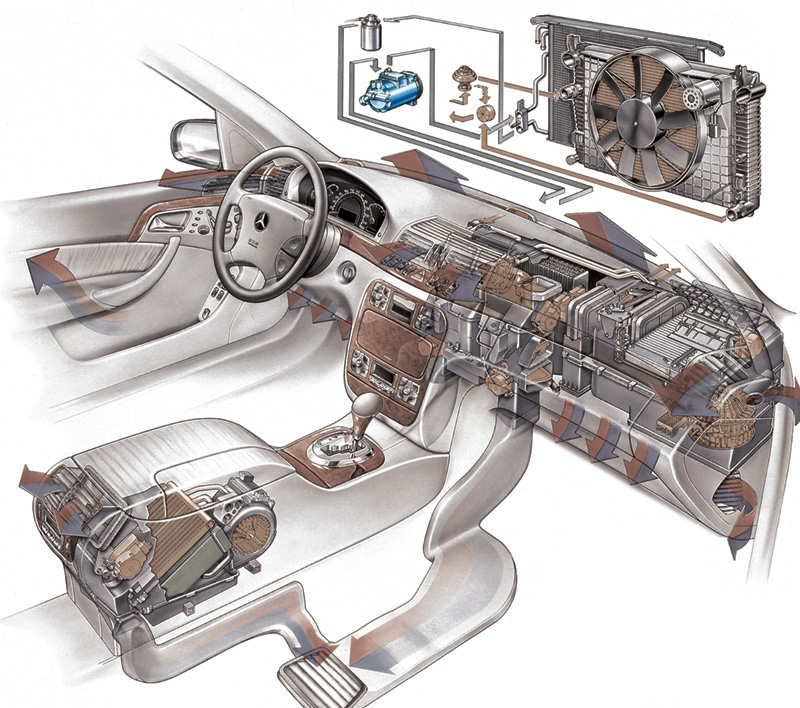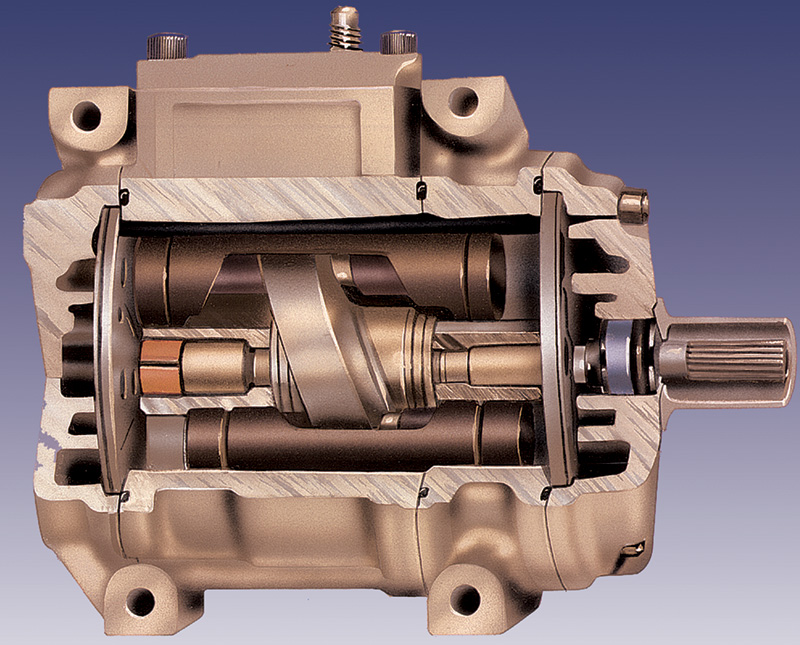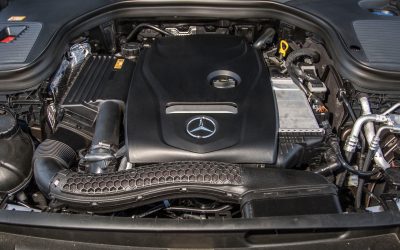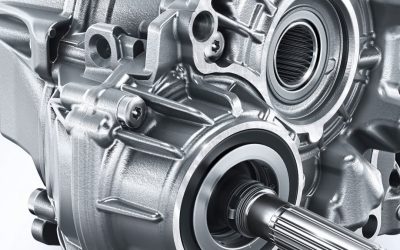While the pump may not be very sophisticated compared to many other components of a modern Mercedes-Benz ATC A/C system, it sure works the hardest.
 When it comes right down to it, there aren’t all that many things that can go wrong with air conditioning system when compared to, say, electronic engine management. There are leaks, of course, but other than that and occasional failure of the expansion device, the only other weak link is the compressor itself, with good reason. It’s in operation most of the year — in defrost in winter if it’s not locked out by a low ambient switch, and in the heat of summer, trying to overcome the increased heat load on newer models that have what the design guys call more “greenhouse” (lots of glass — comedian Steve Martin even has a routine about a home solar heating system that uses car seats as collectors).
When it comes right down to it, there aren’t all that many things that can go wrong with air conditioning system when compared to, say, electronic engine management. There are leaks, of course, but other than that and occasional failure of the expansion device, the only other weak link is the compressor itself, with good reason. It’s in operation most of the year — in defrost in winter if it’s not locked out by a low ambient switch, and in the heat of summer, trying to overcome the increased heat load on newer models that have what the design guys call more “greenhouse” (lots of glass — comedian Steve Martin even has a routine about a home solar heating system that uses car seats as collectors).
So, what causes a compressor to come apart? Lots of things, from insufficient lubrication to shock loading, to a piece of debris in the system. Here we’ll discuss some of the conditions that can turn an expensive compressor into scrap metal.
Serious acceleration
If you look at relative pulley sizes, you’ll see that nearly all compressors are slightly overdriven. Starting a compressor up against any head pressure with engine speeds at, say, 1,800 rpm (multiplied by the overdrive ratio) is a surefire recipe for making our little refrigerant squeezer into a core for the rebuilder.
Now, let’s mount the compressor down low, where oil might run back into the suction side, and we can add liquid slugging to the list of suspects. Liquids are, for all intents and purposes, non-compressible (well, okay, to be precise they’ll compress about one-half of 1% of their volume). Trying to squeeze liquid with a piece of gear designed to squeeze vapor is guaranteed to break the compressor, often tossing internal pieces right through the side. Over charging is another possibility. To add to the challenge, let’s cut back on the weight and strength of a typical modern compressor, and it’s pretty easy to see why compressor life might be a bit of a concern.
Shrapnel
While we’re on a roll, we can talk about short-lived replacements due to poor cleanup from the last failure. System flushing has become more expensive and difficult than ever before; you can’t just sweep it with R-11 as you used to, can you? MB, as most car makers, tells us not to do solvent flushing because they’re afraid you’ll leave something in the system that will ruin the lubricating properties of the refrigerant oil — they’ve found everything from brake cleaners and gasoline to turpentine and lacquer thinner. Personally, we believe flushing is not the way to go, and that it’s difficult to get good results given the convolutions and tiny passages inside many late-model condensers. If the compressor has disintegrated, better think about springing for some new parts such as a condenser and any hoses that contain a muffler. It’s imperative to replace that receiver-drier or accumulator, too.
Slippery stuff
Then there are lubrication issues. First, naturally, is the possibility of oil starvation. We’ve seen compressors lock up because they were dry as a bone. This typically occurs from a refrigerant leak, which takes the oil with it and causes the car’s owner to top up the system over and over (people seem blind to that ugly accumulation of gunk and dust that will be found at the site of the seepage).
How about choosing the right kind of oil? As we hope all of you know by now, R-134a simply can’t transport droplets of mineral oil, so a synthetic lubricant is an absolute must. While POE (polyol ester, commonly called “ester”) has been the most popular lube in the aftermarket, the carmakers and compressor manufacturers/remanufacturers are adamant and unanimous in recommending PAG (polyalkyline glycol). As one reman exec puts it, “PAG oils should be your choice. They provide superior lubrication properties. With R-134a and PAG, we have fewer compressor returns than with R-12 and mineral oil.” An O.E. guy simply says, “We don’t warrant compressors not using the approved lubricant or refrigerant.” Just make sure you get the right viscosity.
By the way, compressor suppliers have told us that in cases where they ship units dry, they often get them back as returns STILL dry. Take the time to read and follow the oiling recommendations that come with the pump.

All the fantastic engineering efforts intended to keep you cool can be defeated by a tiny piece of shrapnel, too little (or the wrong) oil, or several other low-tech problems that can disable the compressor.
Sooner, or later
Given enough time and neglect, any compressor will fail, but just a little maintenance can extend a pump’s life. Cleaning the condenser fins regularly and testing cooling fan operation periodically (particularly on variable or multi-speed fan systems) can make a big difference by keeping head pressures down.
Careful charging is also important. You need to make absolutely sure that you introduce no air into the system. Air tends to migrate to the condenser, effectively reducing its size. Air will cut system capacity and raise high-side pressures, further stressing the compressor. The incidence of air getting into A/C systems during service has escalated with recycling. In some cases, there are specific procedures used to purge recovered air from the equipment that aren’t being followed in the crush of daily business. Now is a good time to re-read your equipment’s operating manual. Make sure the proper purge process is followed or you might be creating a problem during routine service.
No shop doing A/C work can be without a refrigerant identifier these days. There are people out there using blends, illegal refrigerants, and even propane. It’s pretty obvious what the misuse or misapplication of refrigerants might do to a system or the compressor, not to mention your recovery equipment. Recovery without identification is like playing Russian roulette.







0 Comments